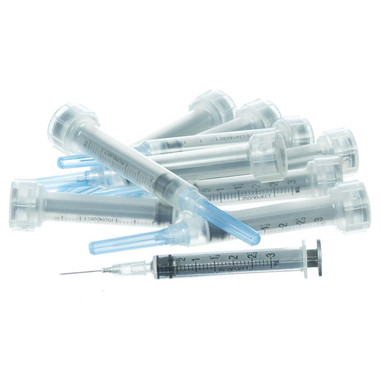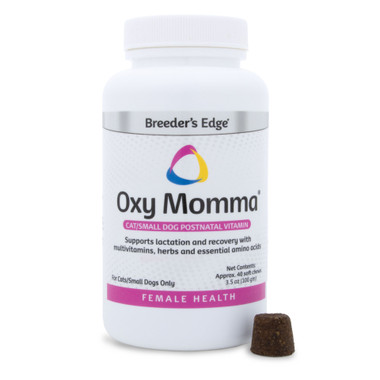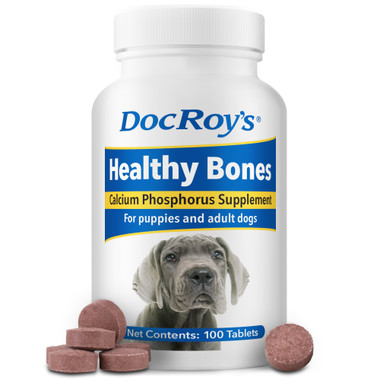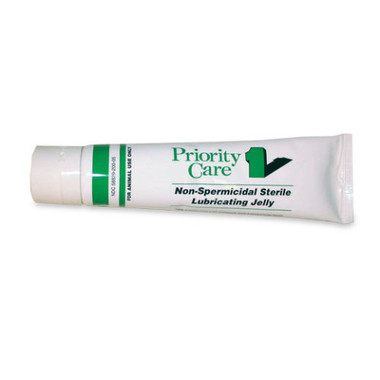Can Dogs Eat Raspberries
Estimated 0 min read

Can dog eat raspberries? Let’s explore
Your dog’s ears perk up as you’re about to take a bite of a ripe, succulent raspberry, and you pause. Could you share this juicy little treat with your furry friend without any worries? The thought of your best friend enjoying a refreshing burst of fruity goodness on a hot summer day is undeniably appealing. But is it really a safe snack choice? Turns out, raspberries are more than just a delightful indulgence for your pup. Moreover, they pack a nutritional punch that could benefit your dog’s health in numerous ways. Intrigued? Let’s explore the fascinating world of raspberries in your canine’s diet. We’ll uncover the right way to treat your furry pal to this tempting fruit.
Read Before Giving Your Dog Raspberries
- Raspberries are safe for dogs to eat in moderation and offer various health benefits
- Xylitol is a naturally occurring item in raspberries. It is toxic to dogs in large amounts so stick to recommended serving sizes
- Prepare raspberries properly by washing, removing stems/leaves, and considering your dog’s size and eating habits
Can dogs eat raspberries?
The simple answer is yes – dogs can eat raspberries because raspberries are not toxic to dogs.
Unlike some fruits that contain poisonous compounds or seeds that can cause digestive blockages, raspberries are generally safe for pups..
In fact, these sweet little morsels are quite low in sugar and calories compared to many other fruits. Thus, they are a smart choice for treat time.
Health Benefits of Feeding Raspberries to Dogs

Raspberries are a healthy choice for your dog
While raspberries may seem like nothing more than a sweet and juicy treat, these little fruits are packed with an impressive array of nutrients. And these can provide some serious health benefits for your furry friend. From supporting a healthy immune system to promoting better digestion, raspberries have a lot to offer your dog.
A Boost of Antioxidants for a Stronger Immune System
One of the most notable nutritional perks of raspberries is their high concentration of antioxidants. These powerful compounds help to neutralize harmful free radicals in your dog’s body. Thus, they can contribute to limiting cellular damage and chronic inflammation over time. By including raspberries in your pup’s diet, you’re helping to bolster their natural defenses against disease and support a robust immune response.
Fiber for Better Digestion and Weight Management
Raspberries are an excellent source of dietary fiber playing a crucial role in keeping your dog’s digestive system running smoothly. The fiber in raspberries bulks up your pup’s stool, making it easier to pass waste regularly and reducing the risk of constipation. Plus, fiber can help your dog feel fuller for longer after meals. And this is especially beneficial for dogs who are watching their waistline.
A Vitamin and Mineral Powerhouse

Lots of vitamins are found in raspberries
In addition to antioxidants and fiber, raspberries are chock-full of essential vitamins and minerals that supporting your dog’s health. For example, these berries are a good source of vitamin C, which is important for maintaining healthy skin, coat, and joints. They also contain vitamin K, which helps with proper blood clotting. Additionally, their B vitamins will support energy production and nervous system function. When it comes to minerals, raspberries offer potassium for heart health, iron for oxygenation. Then, too, there’s magnesium for strong bones and teeth.
Keeping Inflammation at Bay
Another key benefit of raspberries for dogs is their potential to reduce inflammation throughout the body. Chronic inflammation is a common underlying factor in canine health issues, including arthritis, allergies and digestive disorders. The anti-inflammatory compounds found in raspberries, such as ellagic acid and quercetin, can help to soothe irritated tissues. Thus, a more balanced inflammatory response is enhanced. This, in turn, may help to alleviate symptoms and improve your dog’s overall quality of life.
Risks of Giving Raspberries to Dogs

Gradually add to your dogs diet
While raspberries can certainly are a healthy and delicious treat for your pup, there are a few potential risks to keep in mind. As with any new food, it’s important to introduce raspberries to your dog’s diet gradually to avoid any unwanted side effects. Here are some of the main concerns for you to know when sharing these sweet berries with your furry friend.
Xylitol Exposure from Raspberries
One of the most significant potential risks of feeding raspberries to dogs is their natural content of xylitol. This sugar alcohol is commonly used as an artificial sweetener in many processed foods. But it also occurs naturally in small amounts in certain fruits, including raspberries. While xylitol is perfectly safe for humans, it is highly toxic to dogs, even in relatively small doses.
When ingested by dogs, xylitol can cause a rapid release of insulin from the pancreas, leading to a sudden drop in blood sugar known as hypoglycemia. Symptoms of xylitol poisoning in dogs can include vomiting, weakness and lack of coordination. Even seizures or worse, liver failure in severe cases. However, it’s important to note that a dog would need to eat a very large quantity of raspberries to experience this. In fact, eating far more than the recommended serving size may trigger such dangerous effects.
Digestive Problems from Giving Dogs Raspberries

Monitor your dog for stomach issues
Another potential risk of feeding raspberries to your dog is the possibility of gastrointestinal upset. Like many fruits, raspberries are relatively high in fiber, which are beneficial for digestive health but problematic in excess. If your dog indulges in too many raspberries in one sitting, he may experience vomiting, diarrhea, or constipation.
The fiber in raspberries can also ferment in your dog’s gut, leading to the production of excess gas and bloating. This can create discomfort for your pup and may lead to flatulence or abdominal discomfort. To avoid these digestive issues, it’s best to stick to the recommended serving sizes based on dog weight. And introduce raspberries gradually into their diet.
Choking Hazards
While raspberries are generally soft and easy for most dogs to chew, they can potentially pose a choking hazard for very small breeds. Further, this applies to dogs who tend to gulp their food without much chewing. The size and shape of raspberries can make them easy to swallow whole, But they can then cause them to become lodged in your dog’s throat or esophagus.
To minimize the risk of choking, it’s a good idea to mash or puree raspberries before offering them to your dog. Pay special attention if you have a tiny toy breed. You can also try cutting the berries into smaller pieces or even freezing them for a refreshing summer treat. Thus you encourage your pup to chew more slowly. As with any new food, it’s always a good idea to supervise your dog closely when they’re enjoying their raspberries.
How to Safely Give Raspberries to Dogs
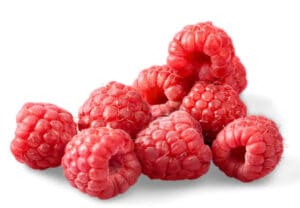
Moderation is best
Now that you know raspberries are a healthy and delicious treat for your furry friend, you might wonder how to add them to your pup’s diet. While it is tempting to simply toss a handful of berries your dog’s way, hold up. There are a few important guidelines to follow to ensure your canine companion stays safe and healthy.
First and foremost, moderation is key when it comes to treating your dog to raspberries. While these sweet little fruits are packed with beneficial nutrients, they should only make up a small portion of your pup’s diet. As a rule of thumb, treats like raspberries should account for no more than 10% of your dog’s daily calorie intake. The exact amount will depend on your dog’s size. Moreover, smaller breeds maxing out at a berry or two per day whereas larger dogs can handle a small handful.
What to look for in raspberries & how to prepare them
When preparing raspberries for your pup, freshness and simplicity are the way to go. Always choose ripe, plump berries that are free from any signs of mold or decay. Give them a gentle rinse under cool water to remove any dirt or debris. Then, take a moment to remove the stems and leaves as these are tough for dogs to digest.
For smaller dogs or those who tend to gulp their treats, it’s a good idea to mash or puree the raspberries before serving. In this way you can prevent any potential choking hazards. You can also try cutting the berries into smaller pieces or even freezing them for a refreshing summer snack. The thought here is that this will encourage your pup to chew more thoroughly.
When it comes to serving ideas, the possibilities are endless! You can offer raspberries to your dog as a standalone treat. Alternatively, mix them into their regular food for a burst of flavor and nutrients. For a change, blend them into a tasty smoothie. Or even stuff them into your pup’s favorite puzzle toy for some mental stimulation along with this sweet reward.
But recognize that there are a few things to avoid when treating your dog to raspberries. Never give your pup raspberries where sugar or other additives are included. Indeed, these are harmful to their health. Similarly, steer clear of processed raspberry products like jams, syrups, or flavored yogurts, since these contain unwanted sugars. As a result, it will likely contribute to an upset in your dog’s digestive system.
Summary of Raspberry consumption and your Pup
It’s also important to keep an eye on your individual dog’s reaction to raspberries, especially if they’re a new diet addition. Some dogs are more sensitive to the fiber content in raspberries. Then you will see some mild digestive upset, such as loose stools or gas, when they first enjoy these fruity treats. If you notice any adverse reactions, it’s best to scale back on the raspberries. Alternatively, consult with your veterinarian to rule out any underlying health issues.
With a little know-how, treating your dog to the occasional raspberry is a fun, healthy way to show them love. And who knows – you might even discover that your pup has a hidden talent for berry-picking on your next outdoor adventure! As you continue to navigate the exciting world of canine nutrition, remember that Banixx is always here to help. From answering your burning questions about whichfoods are safe for your furry friend. Or, providing experttips on keeping your dog’s tail wagging for yearsto come, we’re your go-to dog health resource. So why not stick around and discover even more ways to keep your best friend thriving?
Sources
https://www.petmd.com/dog/nutrition/can-dogs-eat-raspberries
https://www.metlifepetinsurance.com/blog/pet-health/can-dogs-eat-raspberries/
https://wagwalking.com/wellness/can-dogs-eat-raspberries
https://www.purina.co.uk/articles/dogs/feeding/what-dogs-eat/can-dogs-eat-raspberries
dogster.com/dog-nutrition/can-dogs-eat-raspberries
akc.org/expert-advice/nutrition/can-my-dog-eat-raspberries










